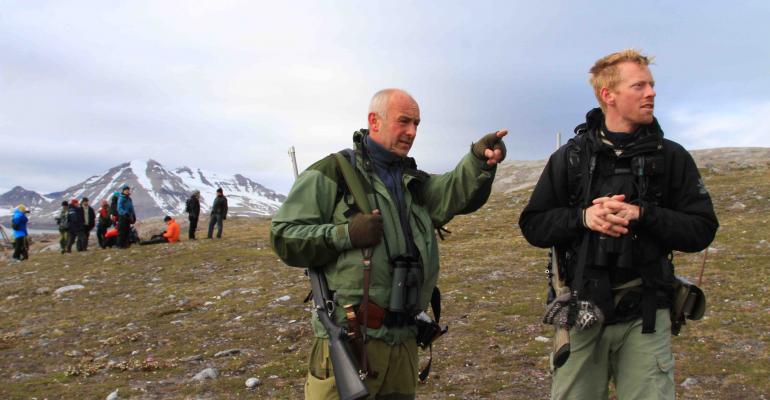Arctic expedition cruising gives travelers the opportunity to get close to nature, observe wildlife and gain cultural insight by visiting local communities.
In order to carry out these activities in a responsible and sustainable manner, guides and expedition leaders are trained in areas such as safety, environmental considerations, cultural sensitivity and community engagement.
Recommended standards that may become mandatory
The new recommended standards were approved for AECO operators at their annual general meeting this month. For now, the standards are adopted as recommended industry standards that may evolve to become mandatory for AECO members.
According to Frigg Jørgensen, executive director of AECO, the new standards will help ensure a high level of competency among polar field staff in the future.
Field staff are important decision-makers
'Field staff are some of the most important decision-makers in our industry. They are on the frontline of operations where important decisions are made in a wide range of areas, and they deal directly with guests,' she said.
AECO’s members put great emphasis on training their guides and expedition leaders to deal with both day-to-day tasks as well as unplanned situations that may occur, Jørgensen continued. The AECO and IAATO field staff standards build on these existing training practices and establish minimum requirements for staff qualifications.
'Adopting these recommended standards will benefit the cruise industry, the areas visited and the guests on board, as well as the field staff,' Jørgensen said.
Ongoing development
The standards have been compiled by experienced operator representatives and will be further developed as the industry gains experience using them. The standards cover areas such as first aid, crisis management, marine radio, navigation, tender boat driving, firearms, polar bear safety and on-board safety.
The intention is not to design a set of courses but to set minimum standards that can be achieved through existing or new courses and training.
Copyright © 2024. All rights reserved. Seatrade, a trading name of Informa Markets (UK) Limited.
Add Seatrade Cruise News to your Google News feed.  |

